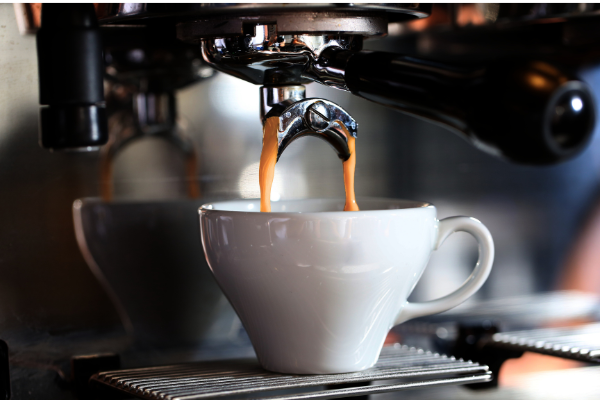Written by Jennifer Ho Sports Dietitian. MS, RD, CD.
Your morning alarm goes off for training. Energy is low, but you know you have to train. You don't know what to eat when nothing sounds appetizing. Considering your brain is still waking up, it seems easier to do a fasted workout. So, coffee, out the door, and off to training.
Training goes fine. The coffee gave you some energy, but not enough to feel strong for 2 hours of exercising. You make it through, drink a protein shake, eat breakfast, and figure out what else is on for the day. Fast forward to the afternoon, and energy is even lower. More coffee, please. Caffeine helps a little bit, but when nighttime comes around, you do not sleep great.
Does any part of this day sound familiar to you? In our bustling world, it is easy to skip fueling and reach for a convenient energy source - caffeine through coffee or energy drinks, for example. However, this is not sustainable energy. It is temporary. You might be wondering, what is fueling? Learn to fuel yourself with the right foods so that training and daily life can feel more energized.
Food is Fuel
Many factors influence how we are fueling for practice. 5am practice? Not enough time in the morning? Not feeling hungry? These cues can lead to skipped meals and hindered performance.
Think of yourself like a car going on a road trip. The car needs fuel to drive, similar to how you need food to perform. As you drive, gas eventually needs to be refilled to keep going. When you train for multiple hours each day, your body needs to be replenished to keep working.
Quality and type of fuel matter too.
Carbohydrates are the primary energy source for our bodies. Simple carbs are important around training for their easy digestibility. What exactly is simple? Think white bread, apple sauce, pretzels, dried fruit, and bananas. Nothing fancy, low-fiber fuel. Avoiding high-fiber foods before training minimizes the risk of upset stomachs and unplanned bathroom trips.
Fats are a secondary fuel source. Our bodies do not metabolize them into energy as efficiently as carbs. Having a small portion of fats helps with satiety. This helps us not feel hungry in the middle of training. However, too much fat can negatively influence exercise, as energy will go towards digestion instead of working muscles.
Protein is essential for muscle maintenance and recovery. Even though it has calories, it is not a primary energy source for our bodies to use. Similar to fat, protein can help with satiety. Every meal should include protein to help with satiety and muscle health.
Fuel Before Training
Fuel before training should focus on quick and easily digested energy sources.
Salads and whole-grain bowls are often thought to be healthy options for athletes. They are, but their timing matters. These foods are high in fiber - a nutrient that should be minimized before training. Fiber slows down digestion, leading to a heavy feeling before exercise. When more blood goes to digestion, that means less blood goes to active muscles. Some high-fiber foods, like leafy vegetables, are poor carbohydrate sources. Prioritize simple carbohydrates before training to optimize energy stores.
It is ideal to have a full meal 3-4 hours before training and a snack 30 minutes-1 hour before you start exercising. This allows your stomach enough time to digest food. Full meals consist of a balance of carbohydrates, protein, and fats. Snacks should primarily focus on simple carbohydrates.
Suppose time is your barrier to fueling for practice. Nothing at 4:30am sounds appetizing. Fair enough. A little bit of fuel is still better than none. Try sports drinks or energy chews when you get to training. These sources have glucose that the body readily uses for energy. Continue to fuel yourself with simple carbs as you train and have a more complete meal afterward.
Fuel During Training
The same simple carbs you had before training are still the star during training. Think about how hard you are working during exercise. Does a hearty grain bowl sound good? Probably not. Simple sugars that are easy to eat are better.
Added sugar in sports drinks, gels, and chews can have a bad reputation. However, being made of sugar is the point of these products. Our bodies quickly digest sugars because they don't have fiber or anything else to slow down digestion. This is converted into quick energy during workouts.
Fueling every hour is key to keeping energy levels high. During endurance bouts longer than an hour, aim to have 30-60 grams of carbs per hour. Training sessions for 3-4 hours should seek up to 90 grams of carbs per hour.
For strength training that lasts longer than one hour, have snacks like granola bars or apple sauce nearby in case energy begins to drop. Caloric expenditure during strength training is generally lower than in endurance training. Increased lean muscle can result from building strength, and in turn, increase resting metabolic rate.
Fuel After Training
You have made it through the workout. What is next? Recovery!
Nutrition is vital for improved recovery. Exercise elicits microtears in muscle fibers and depletes energy stores. By consuming a combination of protein and carbohydrates, your body can rebuild muscle and replenish energy stores. Protein alone is not as efficient as in combination with carbohydrates. The carbohydrate component is crucial in recovery because it supplies energy for your body to repair.
A good rule of thumb is 20g of protein within 1 hour of exercise. Pair it with a 4:1 carb-to-protein ratio for endurance activity or a 3:1 ratio for strength sports. Remember to rehydrate after training to prevent dehydration throughout the day.
To further maximize recovery before the next training session, consider night time fueling strategies. These include:
- Consume a protein-rich snack before bedtime to help muscle repair
- Limit fluid intake 1 hour before bed to minimize chances of waking up in the middle of the night
- Reduce evening caffeine and alcohol consumption to promote better sleep quality
What to Eat on Off Days
Days off do not always equate to not eating or cheat days. Off days are commonly utilized as additional recovery for the body during heavy training periods. Food is still fuel for recovery days and should still be consumed evenly throughout the day. Carbohydrate portions can decrease since energy expenditure is lower. Higher protein and fat intakes ensure caloric needs are being met.
Summing it up: Nutrition for Training
Taking care of your body with proper nutrition will minimize injury risk, improve performance, and enhance focus and concentration.
We have a great resource on nutrition plans for specific sports with prescriptions for nutritionists and dietitians looking to optimize performance for running, cycling, football and more.
Plan ahead, make smart food choices, and have an edge against the competition. Fueling well will lead to feeling great!



